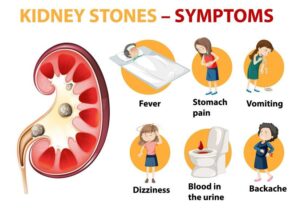The early signs and symptoms of diabetes can be varied, and these symptoms can change depending on the type and condition of the person. Here are some common early signs and symptoms:
Early signs and symptoms
- Excessive thirst and frequent thirst : When blood sugar levels are high, the body may feel more thirsty to make up for the lack of water.
- Excessive urination : High blood sugar causes the kidneys to create more urine, necessitating frequent urination.
- Extreme fatigue: The body’s cells are unable to use glucose properly, which can cause a person to feel tired and weak.
- Increased appetite : Abnormal blood sugar levels can cause a sudden increase in appetite because the body is unable to use energy in the right way.
- Overweight or weight changes : Some people may experience sudden weight gain or loss.
- Blurred vision : High blood sugar can cause fluid changes in the lens of the eyes, leading to blurred vision.
- Slow healing of wounds: The body’s immune system may be weakened in diabetes, causing wounds and injuries to heal slowly.
- Itching and infection on the skin: High blood sugar can cause itching and infection on the skin.
- Nerve tingling or numbness : Prolonged high blood sugar can damage the nerves, causing tingling or numbness.
- Sudden weight loss : In some cases, diabetes prevents the body from using glucose properly, which can lead to rapid weight loss.
Diabetes is a serious and manageable health condition, which can affect quality of life. Its findings are as follows:
- Early recognition and diagnosis:
Importance: It is important to recognize the early signs of diabetes, so that timely treatment can be started and serious health problems can be avoided.
Diagnosis: Diabetes can be diagnosed through blood tests such as fasting glucose test, HbA1c test, and oral glucose tolerance test (OGTT). - Management and treatment:
Lifestyle changes: A balanced diet, regular physical activity, and weight control play important roles in the management of diabetes.
Medications and insulin: Medications in Type 2 diabetes and insulin therapy in Type 1 may be necessary. Using them correctly is important.
Self-monitoring: Regular monitoring of blood sugar levels is helpful in keeping diabetes under control. - Long-term complications:
Heart disease: Prolonged high blood sugar levels of diabetes can increase the risk of heart disease, stroke, and high blood pressure.
Damage to the nerves and kidneys: Diabetes can damage the nerves and kidneys, leading to neuropathy and kidney disease.
Eye problems: Diabetes can cause eye problems like retinopathy, which can lead to vision loss. - Effects on Mental Health:
Stress and anxiety: Living with diabetes can increase mental stress and anxiety. Managing mental health properly is also important. - Research and development:
New therapies: Continued research and new therapeutic methods are being developed in the treatment of diabetes, increasing the likelihood of better management and potential cures. - Support and Education:
Support from health professionals: It is important to get guidance and seek education from doctors, dieticians, and diabetes coaches.
Support groups: Diabetes support groups and education programs can also be helpful in management and mental health.
Proper management of diabetes and lifestyle changes can maintain quality of life and reduce the risk of complications.




